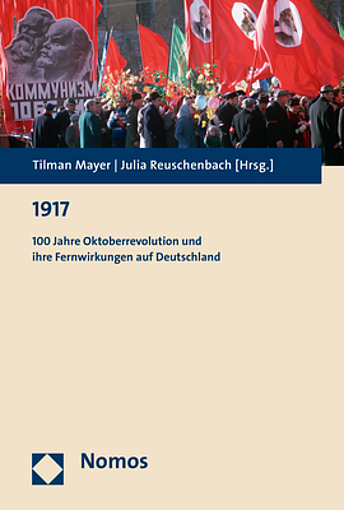englischThe short 20th century was created in St. Petersburg during the October Revolution of 1917 and ended with the peaceful revolution in Germany. In that time, communism, which had failed in theory and practice, developed too strongly, even in Germany and with historic repercussions. All this is reason enough to think critically about the implications of communism, not only for Russians and Germans, and what gave it its impetus. Germany plays an important role in the history of communism, and not only because of Marx and Engels. At the beginning of the 1920s, revolutionary expectations were also directed towards Germany. "Weimar" had been eroded by the Communist Party of Germany, while Stalinism contributed to the division of Germany and the GDR lived under the protection of the CPSU. How does Russia remember its past? What became of the "socialist nations"? Must a history of collaboration be written? Does Soviet dissidence play a role in literature? Many questions can be asked – this book tries to give some answers to them.
Contributions by:
Jan Behrends, Egon Flaig, Markus Gloe, Xuewu Gu, Lutz Haarmann, Anna Kaminsky, Leonid Luks, Ekaterina Makhotina, Michael Mayer, Tilman Mayer, Günther Rüther, Gerhard Simon and Manfred Wilke, as well as a documentation with contributions by Martin Kriele and Richard Löwenthal.
Das kurze 20. Jahrhundert ist im St. Petersburg des Roten Oktober 1917 entstanden und endete mit der Friedlichen Revolution in Deutschland. Dazwischen entfaltete sich der Kommunismus – gescheitert in Theorie und Praxis – allzu nachhaltig und geschichtsträchtig auch in Deutschland. Anlass, die Auswirkungen und Zumutungen – nicht nur für Russen und Deutsche – nachzuzeichnen und kritisch zu bedenken. In der Geschichte des Kommunismus spielt Deutschland, nicht nur wegen Marx und Engels, eine große Rolle.
Die Revolutionserwartungen richteten sich Anfang der 1920er Jahre auch stark auf Deutschland. „Weimar“ wurde durch die KPD erodiert. Der Stalinismus hat zur Teilung Deutschlands beigetragen. Die DDR lebte vom Schutz der KPdSU. Wie wird in Russland heute zurückgeblickt? Was wurde aus den „sozialistischen Nationen“? Ist eine Geschichte der Kollaboration zu schreiben? Spielt die sowjetische Dissidenz in der Literatur eine Rolle? Fragen stellen sich viele – der vorliegende Band versucht einige Antworten auf sie zu geben.
Mit Beiträgen von:
Jan Behrends, Egon Flaig, Markus Gloe, Xuewu Gu, Lutz Haarmann, Anna Kaminsky, Leonid Luks, Ekaterina Makhotina, Michael Mayer, Tilman Mayer, Günther Rüther, Gerhard Simon und Manfred Wilke, sowie einer Dokumentation mit Beiträgen von Martin Kriele und Richard Löwenthal.



